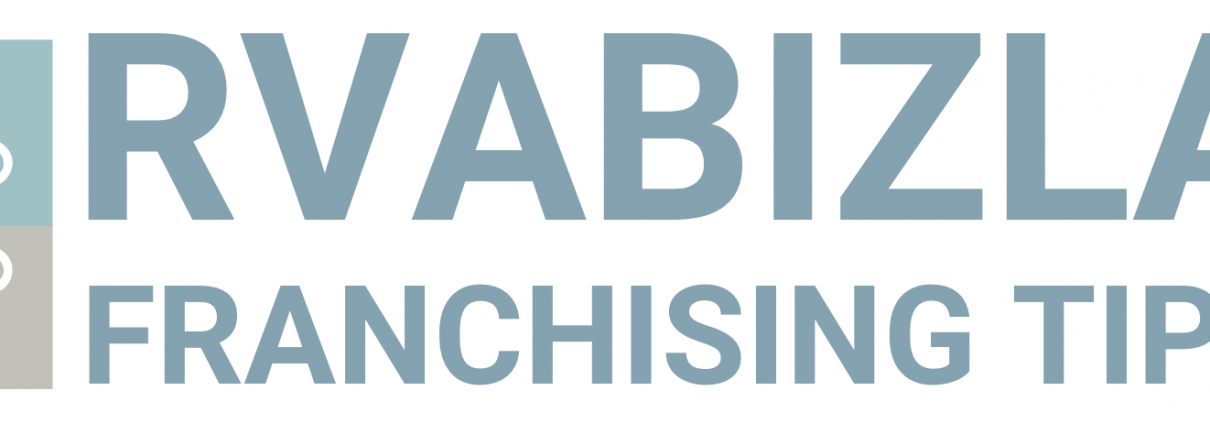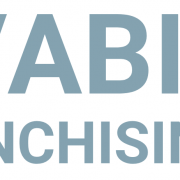25 Tips for Selling a Franchised Business
Selling a franchised business presents some unique issues not typically found in the sale of an independent small business. Rather than closing a deal between two parties, selling a franchised business involves three parties: (i) the selling franchisee, (ii) the buying franchisee, and (iii) the franchisor. The sale of a franchised business often triggers certain obligations of the franchisee and certain rights of the franchisor contained in the franchise agreement. While not an exhaustive list, here are 25 tips to help sellers navigate the process:
Preliminary Considerations.
1. Determine if the business is ready to be sold. Selling a business may be one of the hardest decisions any business owner has to make. Before selling, an owner should be sure he is not only financially ready but also mentally ready. The business must be in good shape (financially and operationally) to attract buyers willing to pay the owner’s asking price. Indicators that a business is ready to be sold include: (i) the business can run without the owner’s day-to-day involvement, and (ii) it has a history of profitability, a solid balance sheet, and a viable plan for future growth.
2. Determine the target sale price. Once an owner determines that she is ready to sell, the next step is determining the target sale price and the initial asking price (keeping in mind that the initial asking price will usually be higher than the target sale price, taking negotiation into account). When determining these prices, business valuation should be a foundational part of the analysis. Generally speaking, there are three different valuation methods: book value, a multiple of earnings before interest, taxes, depreciation, and amortization (“EBITDA”), and discounted future earnings. A multiple of EBITDA is the most common valuation method used, but a detailed description of these business valuation methods is beyond the scope of this article.
3. Review the franchise agreement. Before formally putting a franchised business on the market for sale, sellers must review their franchise agreement to determine what requirements are imposed by the franchisor. These requirements vary; however, pay special attention to: (1) how many years remain on the term of the agreement, (2) any renewal or successor terms, (3) any required pre-approvals by the franchisor, (4) any right of first refusal of the franchisor, and (5) other related transfer restrictions and conditions. Failure to follow the franchise agreement can result in an accidental breach and penalties ranging from a small fine to the loss of the franchised business (and all the money invested into it).
4. Review business entity governance documents. Sellers must review their corporate or LLC governance documents for any provisions that may restrict the transfer of assets, require the consent of other members or shareholders, or require the contribution of money to effectuate the sale. This governing document review will help identify at an early stage potential obstacles impacting a potential sale. Be sure to address any identified issues before listing the franchised business for sale.
5. Review market conditions for the business. While no one can foresee all potential issues that may plague the sale of a small business (i.e., COVID-19 comes to mind), a seller usually will have at least a basic understanding of general trends and market conditions that affect his business. Since certain market conditions can materially impact the ability to sell a business, timing is important.
Marketing Considerations.
6. Identify the target buyer. The seller should consider the levels of expertise and sophistication needed to successfully operate the business. Further, the seller must honor the franchisor’s requirements relating to the qualification of the new owner.
a. Existing franchisees. Existing franchisees should be the first target buyer group that a selling franchise owner should consider. The benefits of selling to an existing franchisee include:
i. The buyer already has been approved by the franchisor;
ii. The buyer already has been trained to operate the business; and
iii. The franchisor knows and has an existing relationship with the buyer.
b. The franchisor. Most franchise agreements will grant the franchisor the right of first refusal on any ownership transfer. To alleviate the risk associated with a right of first refusal, the seller should first ask the franchisor if it is interested in acquiring the business. If the franchisor is not interested, then a best practice is to ask the franchisor to waive its right of first refusal in writing.
c. Third parties. If the seller is unable to find potential buyers from within the franchise system, then self-listing is an option. Please note that once a seller selflists, potential buyers and brokers can contact the seller directly. This may cause a seller to expend significant time and resources vetting potential buyers and speaking to interested brokers. While self-listing can be effective, the seller should understand its advantages and disadvantages.
d. Business brokers. Finally, if self-listing is not working, the seller should consider hiring a business broker to list the business and help guide the seller through the process of finding a qualified buyer and consummating a sale.
Reaching an Agreement.
7. Use a letter of intent (“LOI”). An LOI allows the parties to lay out the basic framework for the acquisition. It is not intended to legally bind the parties (for the most part), so the parties can outline the major terms of the sale and create a road map for the formal agreement at an early stage. Although not usually binding in its entirety, a seller can benefit by including a binding confidentiality provision where the buyer agrees to maintain the confidentiality of the seller’s information and not use it in a competitive business.
8. Cooperate with the buyer during the due diligence phase. Typically, an interested buyer will conduct due diligence to assess the value of the business and the risks associated with it before closing. During this period, the seller has a few formal legal duties. The seller should reasonably cooperate with the buyer during the due diligence period. For instance, the seller should provide access to the information requested by the buyer (i.e., make copies of the documents and give them to the buyer or upload requested documents to a virtual data room). Responses to due diligence requests should be timely and complete. If due diligence requests require an unreasonable amount of time and labor, then arrangements should be made with the potential buyer to allow sufficient access to documents and information in a more cost-effective manner. A seller also has a legal duty not to misrepresent the status of the business (by fraudulent misrepresentation or omission of material information).
9. Use leverage during negotiations. Both parties enter negotiations with their specific leverage points. Bargaining leverage will vary depending on the seller’s motivations for selling the business (i.e., is the seller jumping ship from a failing business or is the seller cashing out from a profitable business?) and the buyer’s experience in the franchise system (i.e., is the buyer new to the system?). A seller should consult with his legal and business advisors about what his leverage points are and what the buyer may consider their leverage points before entering negotiations.
10. Identify potential deal breakers. Sellers should determine what terms they consider to be deal breakers. Common deal breakers include purchase price, payment terms, assumed liabilities, and additional fees. It is important to identify early on in the process what would likely cause a party to walk away from the deal.
11. Determine when to tell the franchisor about the sale of the business. When selling a franchised business, the franchisor will need to be involved in the process. While it is up to the seller to determine when to tell the franchisor, the best practice is to notify the franchisor during the early stages of this process.
12. Check to see who is responsible for third-party costs. The parties should consider who will incur the third-party costs associated with the sale, such as any transfer fees imposed by the franchisor, landlord, and other vendors. A seller should consult with her business attorney about these costs and account for them in negotiations.
13. Carefully read the contractual representations of seller and buyer. The representations section of an asset purchase agreement is usually more burdensome for sellers since the buyer wants to ensure that the assets are free and clear of any liens and that the financial and other information provided to the buyer is true and accurate. Therefore, a seller needs to be confident that all contractual representations are accurate and complete.
14. Determine how to handle existing employees. The parties must agree in the asset purchase agreement what will happen to the current employees of the business. Frequently, the seller is obligated to ensure that all employees cease to be seller’s employees as of the date of closing and pay all costs associated with such termination, including but not limited to severance pay, vacation, and any contributions to benefit plans before the date of closing.
15. Carefully read any personal guaranty and other contracts. Even though the seller is selling the franchised business, the owner still may be liable under his personal guaranty (if any) or other contracts for any issues relating to the soon-to-be sold business (i.e., a commercial lease). If possible, the seller should strive to obtain a release from its landlord, franchisor, and any other third parties in connection with the business that will be assumed by the buyer. It will not always be possible to negotiate a release, in which case the selling owner will need to rely on contractual indemnity protections from the buyer.
16. Carefully read the indemnification provision. Indemnification is typically one of the most negotiated provisions in an asset purchase agreement. As expected, the buyer will want the strongest indemnification language possible, whereas the seller will seek to limit its obligations and liability risk after closing. In general, a seller should attempt to obtain an indemnification obligation from the buyer for all claims arising from any breach of any representation of the buyer, any failure to comply with any of its obligations under the asset purchase agreement, and any claim arising from the buyer’s ownership and operation of the business and purchased assets after the closing date.
17. Include a confidentiality provision. During negotiation and due diligence, a lot of seller’s confidential information will be shared with the buyer. Accordingly, a seller should include a provision to which the buyer agrees to keep confidential any information provided to it or obtained by it in connection with the asset purchase agreement (excluding disclosures that may be required by law and disclosures to the buyer’s attorneys, accountants, advisors, and other third parties as may be required to effectuate the asset purchase agreement).
Financing the Deal. There are four primary sources for a buyer to finance a business acquisition. Sellers should understand the basics of each option:
18. Commercial Financing. This refers to traditional loan financing from a banking institution where the lender provides a loan for the capital to acquire a business.
19. SBA Financing. This is a subset of commercial financing where the U.S. Small Business Administration (“SBA”) guarantees a portion of the lender’s loan, which is conditional based on the lender following certain requirements. If the borrower defaults, the SBA pays off the guaranteed portion of the loan.
20. Seller Financing. Seller financing is the riskiest option for sellers, but very common in the small business community. Seller financing is exactly what it sounds like: the seller agrees to accept payment of a portion of the sale proceeds over time, typically memorialized by a promissory note and collateralized by either a security interest in the assets of the business, a personal guaranty, or other form of collateral. The seller is taking on the risk of non-payment. Seller financing should be used only when and to the extent necessary to consummate the transaction.
21. ROBS Rollover. This is a relatively new (within the last 15-20 years), and slightly convoluted, development. With ROBS rollover financing, a buyer withdraws money from an existing retirement plan to finance the acquisition. The buyer then must form a C-corporation through which to conduct the acquired business. After the C-corporation is formed, the buyer must create a self-directed 401(k) plan. Funds from the buyer’s existing 401(k) account are then transferred to the newly created self-directed 401(k) plan. The buyer, as a trustee of the self-directed 401(k) plan, then directs the plan to purchase the stock of the new C-corporation. The C-corporation then uses the funds to complete the acquisition. There are a small handful of companies that specialize in helping business owners create and maintain these types of plans. The fees are not insignificant, and there are a number of ongoing compliance requirements to satisfy. Risking one’s retirement savings on a start-up small business venture is not for the faint of heart, so proceed with caution when considering a ROBS Rollover as a financing strategy.
Closing Documents.
22. In addition to the asset purchase agreement, other documents will be required to complete the sale. Here is a brief checklist of some of the ancillary closing documents involved with a small business acquisition:
a. Bill of sale and general assignment. This is generally a short document that confirms the purchase price and states that the seller sells, conveys, and delivers to the buyer all the seller’s right, title, and interest in the assets being conveyed through the asset purchase agreement.
b. Transfer agreement, termination agreement, and consent of the franchisor. This agreement is a three-party agreement between the seller, the buyer, and the franchisor. It serves to identify the terms and conditions required by the franchisor in connection with the transfer of the franchise rights.
c. Assignment of lease and landlord approval. For any businesses operating from a leased office or retail location, the lease must be assigned to the buyer (unless the term will expire before the closing date). The existing lease agreement typically will contain specific terms and conditions upon which the landlord will permit, or deny, a requested assignment. It is crucial for sellers to read their leases carefully to ensure that they do not accidentally commit a breach.
d. Corporate resolutions and meeting minutes. For sellers that are business entities, the members or shareholders typically must approve the sale. A seller can get the requisite approval through a unanimous written consent or by holding an actual meeting of the members or shareholders. Either way, the selling entity must notify its owners that it proposes to sell all or substantially all its assets to the buyer and the material terms of the proposed sale.
e. Form 8594. The asset purchase agreement should contain a provision that allocates the purchase price for the assets or requires the parties to agree on this allocation at closing. The allocation of the purchase price must then be reported to the IRS on Form 8594 by both the seller and the buyer.
f. Closing statement. While not required, the parties often prepare a closing or settlement statement that reflects the purchase price and any adjustments to the purchase price based upon the terms of the asset purchase agreement and other documents related to the sale.
g. Other assignments and transfers. There may be other assets that require separate assignment documents, such as telephone numbers, domain names, advertising contracts, vendor contracts, and administrative rights to social media pages.
h. Utilities. The seller’s utilities need to be terminated and re-established by the buyer. The seller should have all deposits returned to the seller, and the buyer needs to place new deposits when establishing service in the buyer’s name.
i. Seller’s termination of employees & rehire by buyer. Usually, the seller should terminate all the employees of the franchised business, and then the buyer should rehire all the employees that the buyer wishes to retain.
j. Insurance, licenses, taxes, and permits. The seller should cancel existing insurance policies and obtain refunds for any unearned premiums (unless there is a reason to maintain certain coverages for a period of time after closing). A seller should file any final tax returns, including payroll, sales and use, and income tax returns.
Franchise Disclosure Document (FDD).
23. Determine if an FDD must be provided to the buyer. Under the Federal Trade Commission Franchise Rule (“FTC Rule”), franchisors must provide any prospective franchisee with an FDD as part of an offer or sale of a franchise. However, the FTC Rule excludes sales of a franchise by an existing franchisee if the franchisor does not have significant involvement in the transaction. The FTC Rule states that providing consent to the sale does not create significant involvement in the transaction. If the franchise agreement requires that the buyer enters into the then-current form of the franchise agreement, the franchisor must first provide the buyer with an FDD. An FDD must also be provided if the franchisor facilitates the sale or if the franchisor holds discussions with the buyer regarding the financial condition of the franchised business.
Post-Closing Issues.
24. Determine if there will be a consulting agreement between seller and buyer. Sometimes the buyer will request that a selling owner provide post-closing assistance or consulting services to the buyer to assist with the transition of the business. This arrangement can raise several questions that should be addressed in a separate, written agreement, such as:
a. What specific services will the seller provide to the buyer?
b. How long is the term of the consulting agreement?
c. How much compensation will the seller receive for her services under the consulting agreement?
d. Who can terminate the consulting agreement? Why?
e. How will disputes be handled between seller and buyer?
25. Start winding down. After the closing, a seller should consider winding down its business entity. Unless the seller is operating in its individual capacity, or the seller entity owns and operates other businesses and intends to continue those businesses post-closing, the seller entity should dissolve and wind down its affairs in accordance with its governing documents and applicable law.
Selling a franchised business involves many legal and business issues. If addressed proactively, these issues can facilitate a sale and maximize value to a selling owner. If ignored, then problems may arise and derail a transaction. If you need help buying or selling a franchised business, reach out to Perkins Law at 804.205.5162 or [email protected] to discuss.








Leave a Reply
Want to join the discussion?Feel free to contribute!